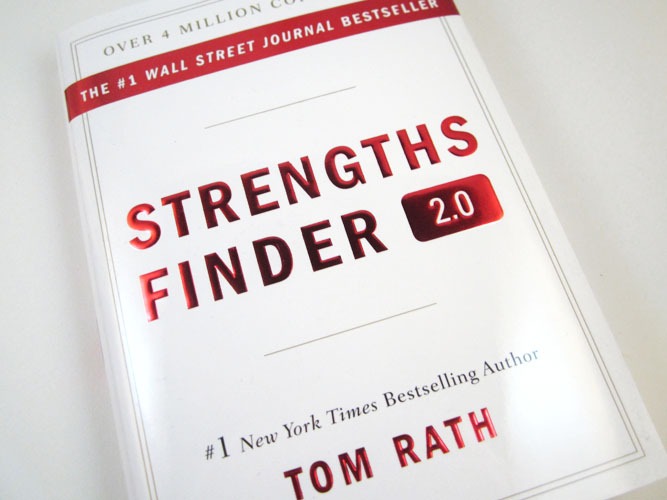

In fact, one of the things I like about the 34 themes in StrengthsFinder is that it provides some helpful descriptions of personality traits that one can and should learn from, even if it’s not a core competence. No, depending on our circumstances, sometimes our greatest opportunity and room for growth is in an area that we’re not naturally gifted in.

As Voltaire famously wrote, “Le mieux est l’ennemi du bien.” The perfect is the enemy of the good. THEME #2) PERFECTIONIST: By defining a strength as “consistent near perfect performance in an activity,” and by laying down the opening premise that “Each person’s greatest room for growth is in the areas of his or her greatest strength,” the authors push an agenda which is fraught with difficulties in a world which is less than ideal. It pleases you.” Or how about this: “Others may label you creative or original or conceptual or even smart. Well, the idea of “strength” is positive from the get-go, and some of the 34 theme definitions are downright ebullient: “You know you will be judged not by what you say, not by what you think, but by what you get done. StrengthsFinder exhibits many characteristics of the Forer Effect, namely, that people lend credibility to descriptions of their personality that are vague and generally applicable, especially when those descriptions appear to be tailored to them, authoritative (backed by science, ancient wisdom, surveys of 2 million people, etc.), and generally positive. No, I didn’t even test high for ANALYTICAL on StrengthsFinder, but perhaps this is just a combination my IDEATION and INTELLECTION themes, and my being a GEMINI and having a moon sign of…wait… I forget… I’m actually tempted to do a comparison of the 34 StrengthsFinders themes and the 12 signs of the traditional horoscope. With its black box survey algorithm, blurry definitions and distinctions, and its total lack of falsifiability, it’s impossible to prove or disprove anything about StrengthFinders. In the end, these 34 themes have an almost horoscope-like quality to them, especially since we the readers are advised to not look at just our top theme but rather to “weave” or “braid” together our Signature Themes. makes me feel like a new line of fragrance from Sean John… ) However, when you get right down to it, what the authors relegate as “skills” that can be learned versus “talents” that are innate can, at times, seem a bit arbitrary. Furthermore, when describing a situation where a person achieved greatness in an activity outside their core themes of talent, the authors explain it away by describing how that person could have drawn on a different strength to get the job done. Finally, the test is opaque: You don’t get to see your numerical scores on individual themes, and in the standard version, you only get a list of the top five, or what they call your “ Signature Themes.” In order to perform an activity, the authors say we must have knowledge (defined as “the facts and lessons learned”) and skills (“the steps of an activity”). THEME #1) ARBITRARY: The premise of StrengthsFinder is to use an inventory of 34 “themes” to help people discover their talents, which are defined as “naturally recurring patterns of thought, feeling, or behavior” that are “enduring and unique.” By understanding and harnessing one’s talents, a person can cultivate their strengths, which are defined as “consistent near perfect performance in an activity.” Rather, just as the StrengthsFinder test will give anyone their Top Five Themes of Strength, I will now proceed to pick out what I think are the Top Five Themes of Weakness of StrengthsFinder. Now, I won’t be discussing what’s great about StrengthsFinder, other than the words “well-designed,” “thumbs up,” “very insightful and practical” (above), and “brilliantly lucrative and well-executed book and consulting services marketing strategy.” The original version of the book, Now, Discover Your Strengths was co-authored by Clifton and Marcus Buckingham, who has since left the Gallup organization to start his own gig. Donald Clifton, StrengthsFinder 2.0 is a book by Tom Rath that serves as a “wrapper” for an online personal assessment that you can take through. Created by the Gallup organization and based on the research of Dr. StrengthsFinder is a well-designed diagnostic (and coaching / talent management approach) that can be used to help individuals and teams become more successful, by focusing on people’s strengths, as opposed to their weaknesses.


 0 kommentar(er)
0 kommentar(er)
